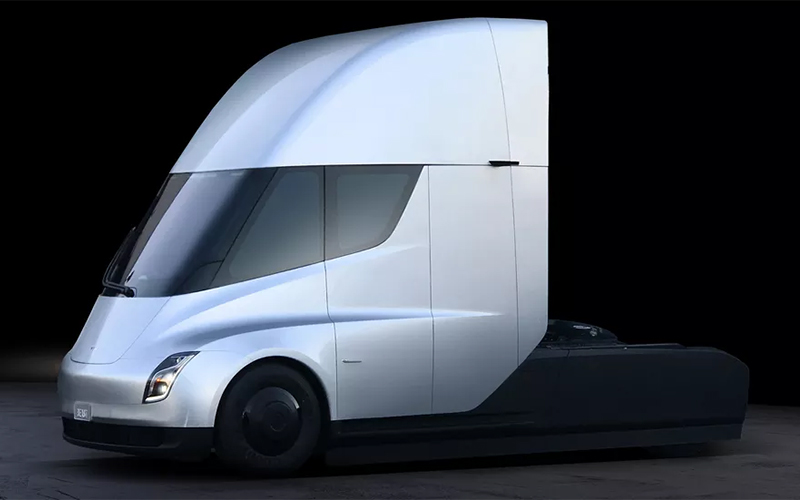Tomorrow’s semi-truck unveiling is the next logical step for Elon Musk's Tesla company who in June 2016 revealed through the company’s second Master Plan that it was looking to enter the commercial trucking industry.
Like most of the upcoming Tesla vehicles announced in Musk’s’ ‘Master Plan Part Deux’, not much is known about the semi-truck vehicle.
Here’s the relevant part of the 2016 ‘Master Plan‘:
“In addition to consumer vehicles, there are two other types of electric vehicle needed: heavy-duty trucks and high passenger-density urban transport. Both are in the early stages of development at Tesla and should be ready for unveiling next year. We believe the Tesla Semi will deliver a substantial reduction in the cost of cargo transport while increasing safety and making it really fun to operate.”
The company is set to unveil the all-electric semi truck tomorrow at a live-streamed event starting at 8 p.m. PT (11 p.m. ET).
Musk tweeted Sunday about the event.
Tesla Semi Truck unveil to be webcast live on Thursday at 8pm! This will blow your mind clear out of your skull and into an alternate dimension. Just need to find my portal gun ...
— Elon Musk (@elonmusk) November 12, 2017
As reported by Teslarati, an all-electric truck would be less expensive to operate than its gas and diesel counterparts on account of reduced maintenance, fuel, and reduced insurance costs once autonomous “platooning” technology is in place.
According to a previous report by Adam Jonas of Morgan Stanley, a Tesla Semi could result in operational cost reductions of 70% over existing trucks on the market.
As mentioned before details of Tesla’s Semi has remained light, with the only hint being that the all-electric truck drives like a sports car, according to Musk, and a “seriously next level” truck that can compete in the heavy-duty, long-haul trucking sector.
Initial reports peg Tesla’s electric hauler to have a range of 200 to 300 miles, making the semi-truck better suited for short-haul operations.
According to former Ryder CTO, Scott Perry (now Chief Operating Officer at Nikola Motor Company) who reportedly met with Tesla officials and learned that the company was looking to target regional hauling with its upcoming semi-truck, Tesla could also have a strategy for tackling long distance hauling.
“I’m not going to count them out for having a strategy for longer distances or ranges, but right out of the gate I think that’s where they’ll start,” said Perry.
Tesla will likely focus on the short-haul segment first, due to the lower cost barrier to entry because of the smaller battery packs needed, but also because the market has the broadest range of applications that can benefit from an all-electric semi-truck. Teslarati previously analyzed the ROI for a Tesla Semi and found that there’s a clear business case for it in the short-haul industry.
Tesla will go up against other companies trying to develop electric semi-trucks and smaller delivery vehicles.
Other potential rivals include Bosch, Cummins, and Daimler. A number of companies such as Siemens have pilot programs already in place to test the viability of electrifying commercial trucks. And there are a few startups also pursuing some variant of that electric trucking or delivery van goal, including Chanje, Nikola, and Wrightspeed.
Related: Tesla Enters The Trucking Business
Article topics
Email Sign Up



















